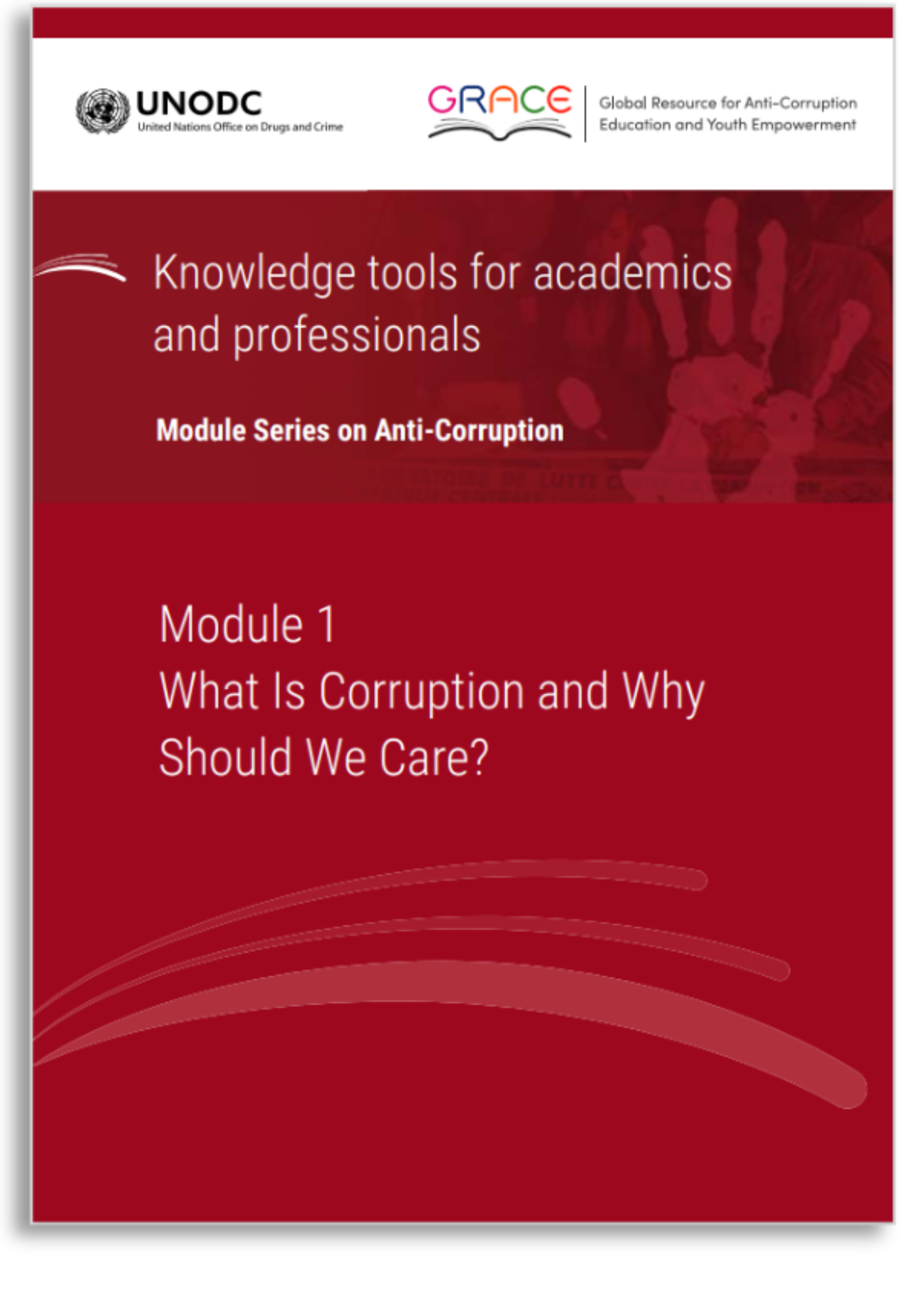To achieve the difficult and complex objective of preventing and countering corruption, it is increasingly recognized that there needs to be a whole-of-society approach. It is not the responsibility of governments and law enforcement alone to prevent corruption. Other actors in society, such as young people, educators and non-governmental organizations, to name a few, have an important role to play in building an environment where integrity is valued and where corruption is rejected.
Anti-corruption education is key to building a culture of integrity. Through increased knowledge of the corruption risks and effects, it is possible to foster attitudes that do not tolerate corruption and develop skills that empower individuals to resist social and cultural pressures when faced with corrupt practices.
Individuals’ choices have an impact. Teaching about the values of ethics and integrity from a young age and throughout one’s educational journey is a fundamental approach that should be fostered by both public and private institutions, as well as civil society.
The United Nations Convention against Corruption underscores the importance of raising public awareness about and increasing knowledge of the threats posed by corruption, with a special emphasis on the role of targeted public education programmes in schools and universities. The political declaration, adopted by the General Assembly at its special session against corruption in 2021, also places anti-corruption education and training at the core of a holistic and multidisciplinary approach to promote transparency, accountability and integrity, recognizing the crucial role of young people as agents of change.

The GRACE initiative works at all levels of education: primary, secondary, tertiary, informal and adult education. Its dedicated portal provides insights into ongoing activities and grants access to a wealth of resources aimed at fostering a culture of rejection of corruption.

UNODC and Independent Commission Against Corruption, Hong Kong, China, 2023
The guide is aimed at assisting anti-corruption authorities in supporting young people in their anti-corruption efforts. It fills the gap between the intention of these agencies to engage with young people and the lack of guidance availalble on how to do so.

UNODC, 2023
The guide supports secondary teachers and youth in using the “Forum Theatre” pedagogical methodology, which provides a safe space for enacting and discussing real-life corruption scenarios, to address complex topics and stimulate active engagement.

UNODC, 2022
This manual contains nine lesson plans on ethics, integrity and the rule of law, primarily targeting teachers and facilitators working in formal or informal education environments at the primary level (working with children aged from 6 to 12).

UNODC and UNESCO, 2019
UNODC and UNESCO jointly published two handbooks, one for primary and one for secondary schools, to help teachers empower their students by developing their critical thinking and empathy - skills which often do not feature prominently in school curricula.

UNODC and UNESCO, 2019
This handbook, jointly published by UNODC and UNESCO, serves as a catalogue of classroom and out-of-classroom activities for teachers and educators teaching secondary-school students, encouraging them to integrate integrity in all teaching subjects.

UNODC
UNODC has developed a series of anti-corruption modules that lecturers can use as a basis for teaching in universities and academic institutions across the world. The modules are multidisciplinary and adaptable to different local and cultural contexts.

UNODC
The modules seek to enhance students' ethical awareness and commitment to acting with integrity, and equip them with the skills necessary to apply and spread these norms in life, work and society.